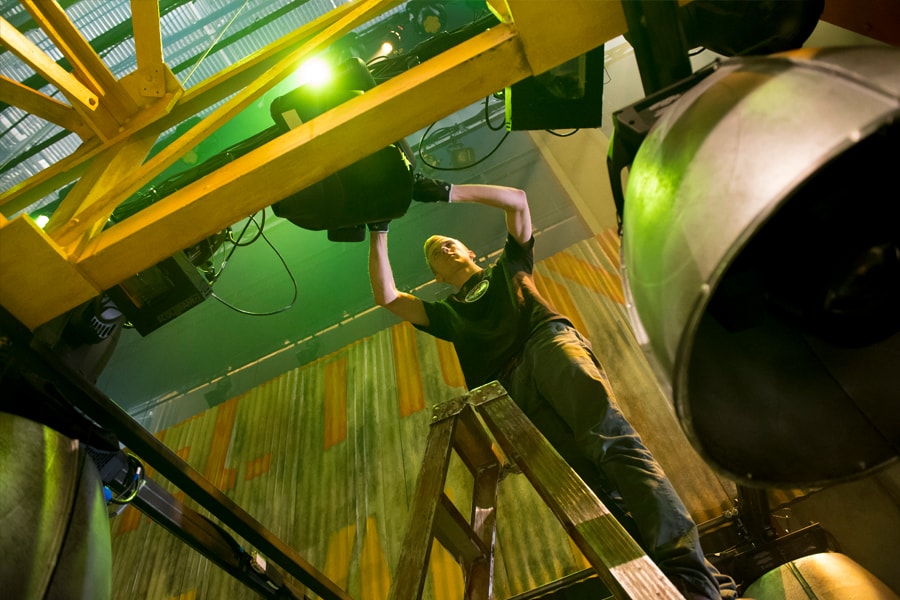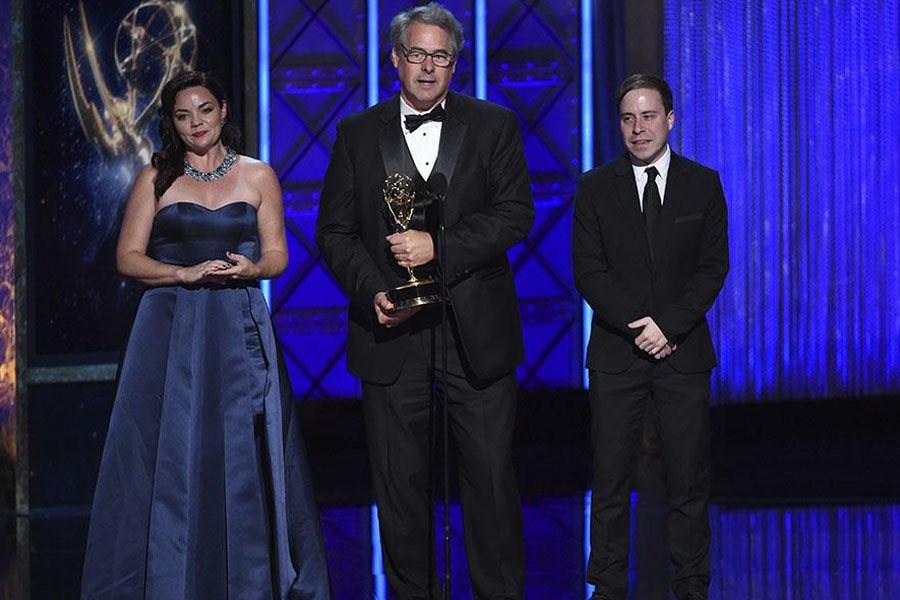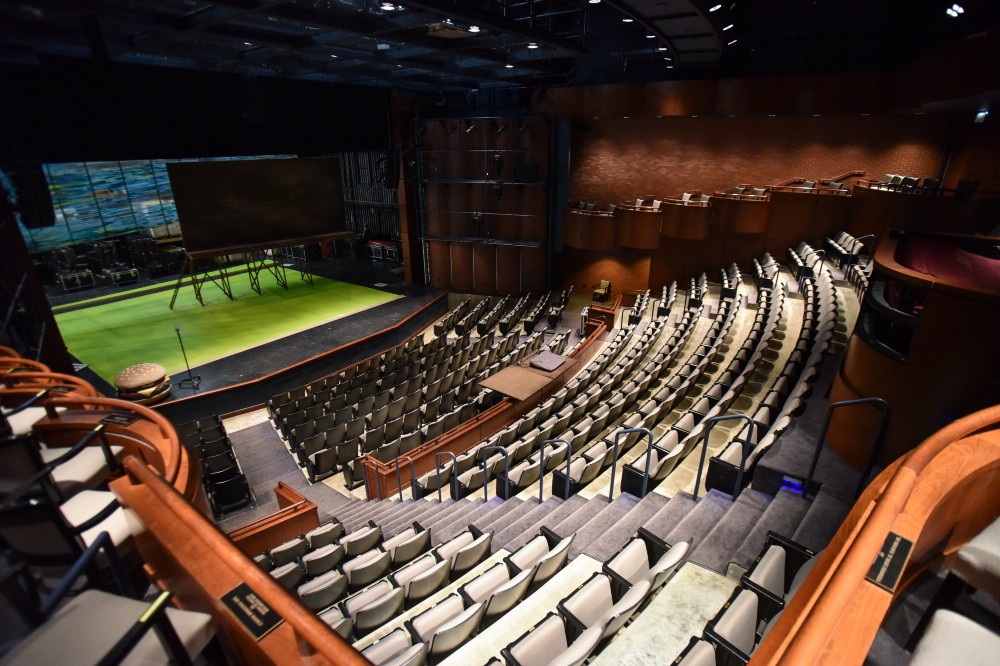
CMU Drama Puts Alumni in the Spotlight Backstage
- School of Drama
- 412-268-2068
- School of Drama
- 412-268-1047
Whether it's in front of the camera or behind the scenes, alumni from Carnegie Mellon University's School of Drama have risen to stardom. Countless opportunities exist for talented graduates who trained to become behind-the-scenes professionals and whose work is vital to the success of any production.
In the Design and Production Technology Management options, hands-on training begins at CMU almost from day one, as students learn from experienced professors how to design and fabricate sets, record music, and balance a production budget as they prepare for careers in the entertainment industry.
The School of Drama's conservatory program provides a rigorous academic experience that helps ensure students have a solid background in the skills needed to work in a variety of positions.
Undergraduate design and production technology management students follow a curriculum similar to that of a graduate program, enabling them to achieve a higher level of skill and start employment at a more advanced level, said Joe Pino, an associate professor of sound design. Students are immersed in classwork and stage productions. The experience provides them with insight on how to balance professional projects for multiple clients.
"In terms of being an artist, you need to have knowledge of the world around you but, at the same time, you need to have technical skills," Pino said. "Our graduates end up all over the United States doing all kinds of work in the entertainment industry, not just in theater in NYC or in film in LA, Chicago, Las Vegas, Philadelphia, San Francisco, Seattle, Atlanta, Houston, Boston — you can't go anywhere and not run into a CMU alumnus."
Many CMU alumni are working at the highest levels in their fields, consistently being nominated for, and sometimes winning, Emmy and Tony awards for their backstage work.
"CMU is this incredible environment of creativity — everyone there has a passion for what they do," said Peter Hylenski, a 1997 drama graduate and a five-time Tony Award nominee. This year Hylenski is nominated for Outstanding Sound Design of a Musical for his work on the revival of "Once On This Island."
Between Jan. 27 and Feb. 4, 2016, a team of CMU students loaded in the set for the School of Drama production of "The Full Monty."
In 2017, 14 Carnegie Mellon alumni garnered 17 nominations for eight Emmy awards. Of the alumni nominated, 13 hail from the design and production area of the School of Drama, including scenic, costume and lighting designers. Two of those alumni, Eugene Lee, a 1975 drama graduate, and Andrew Leitch, a 1997 drama graduate, won awards for their work.
Similarly, this year six CMU alumni are nominated for 12 Tony Awards, five of the six nominees work behind the scenes as designers and producers.
Kevin Hines, an associate teaching professor of technical direction, has taught at Carnegie Mellon since 1998. A technical designer and consultant for Broadway and national touring productions, Hines started in college at Binghamton University as a mechanical engineering major, but he soon discovered a deep interest in technical theater and teaching, which eventually led to him earning a master's degree in fine arts from the Yale Drama School.
"My first job out of college was teaching students how to build scenery, and I found interaction with college-aged students very rewarding," Hines said. "I wanted to teach, which is what led me to go to Yale — and my eyes were opened to a whole new range of possibilities. We studied structural and mechanical design, fabrication in not only wood, but also in steel, plastics, aluminum and other materials, including machining, welding and other more advanced processes."
Using that philosophy as the basis for his own method of teaching, Hines helped to craft Carnegie Mellon's options into an individualized educational experience. Close working relationships with professors provides students with a customized approach to learning. Hines doesn't just teach students how to build sets; he also explains the reasoning behind each of the steps in the process.
"You can't learn everything you might need to know in the theater in four years, but we're always trying to teach them something that hasn't been done before," Hines said.



